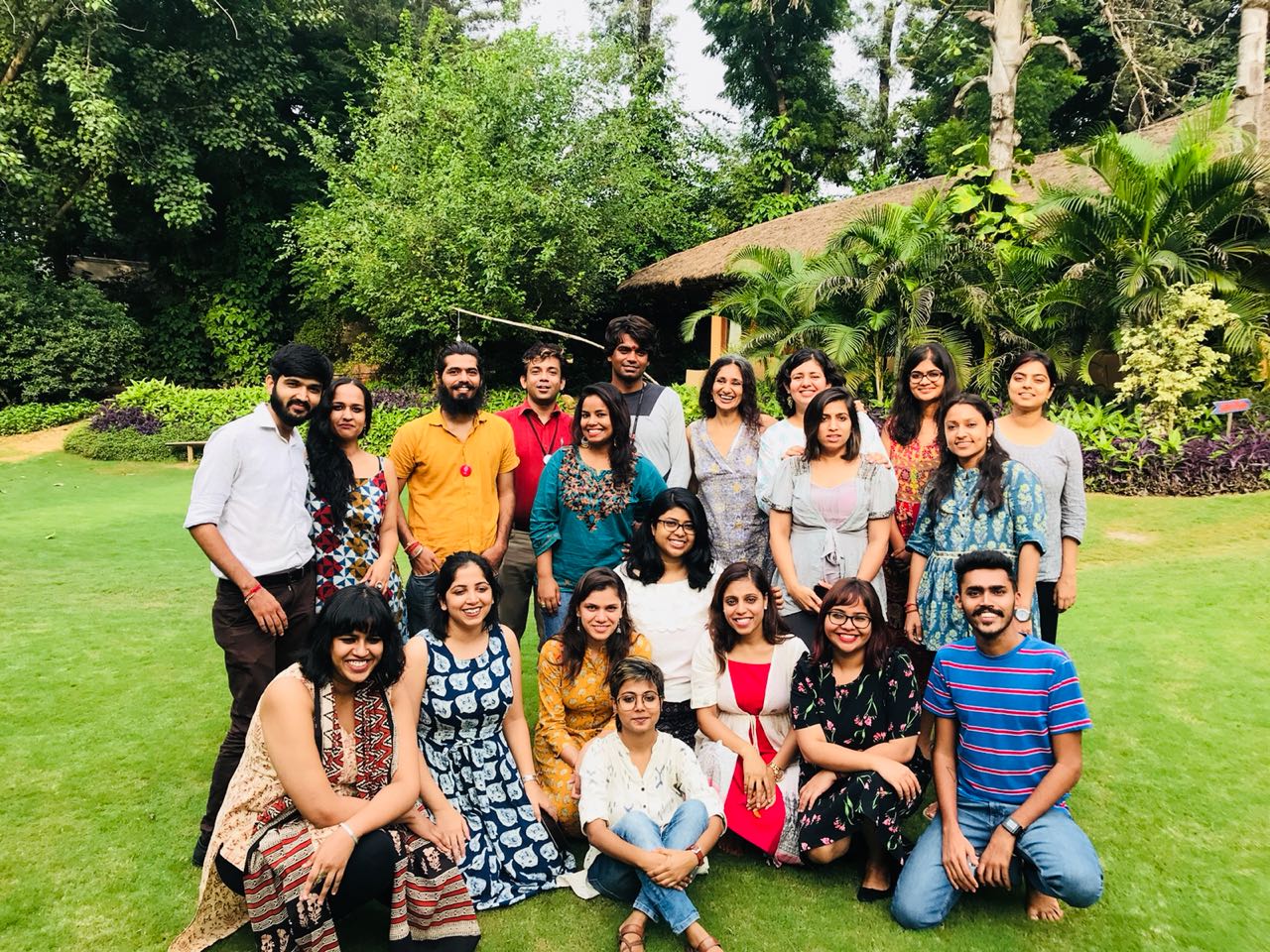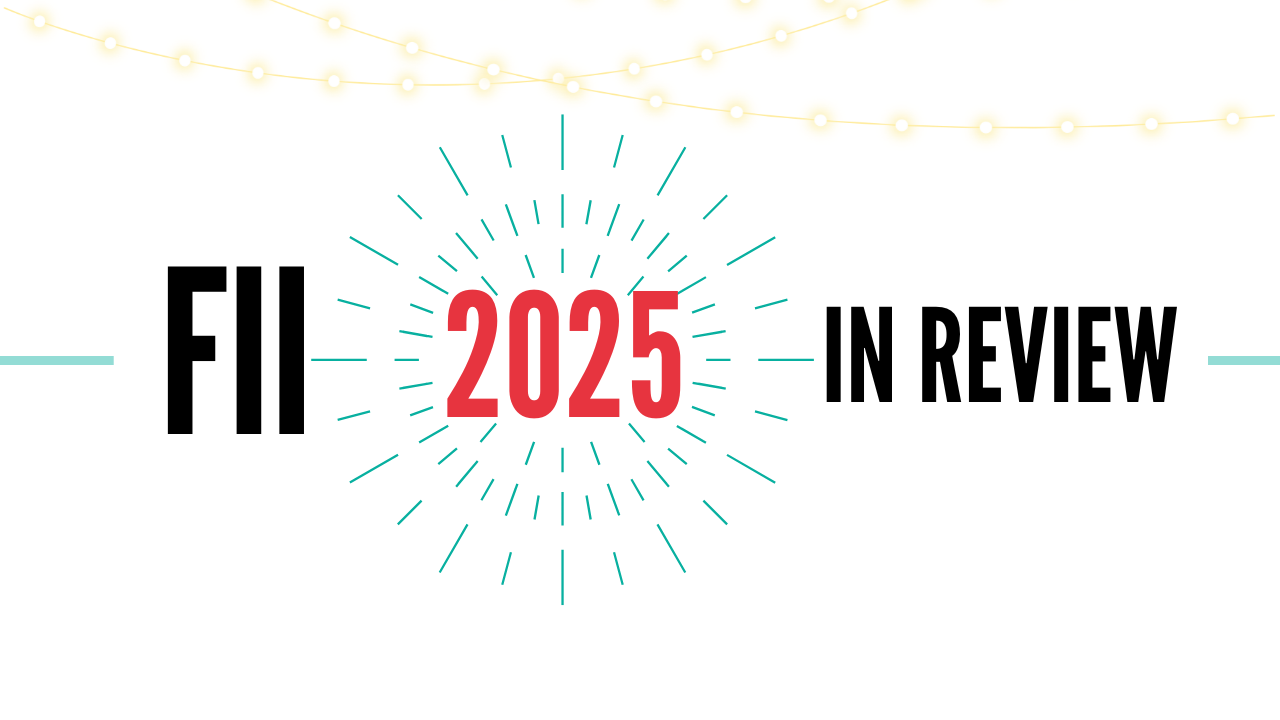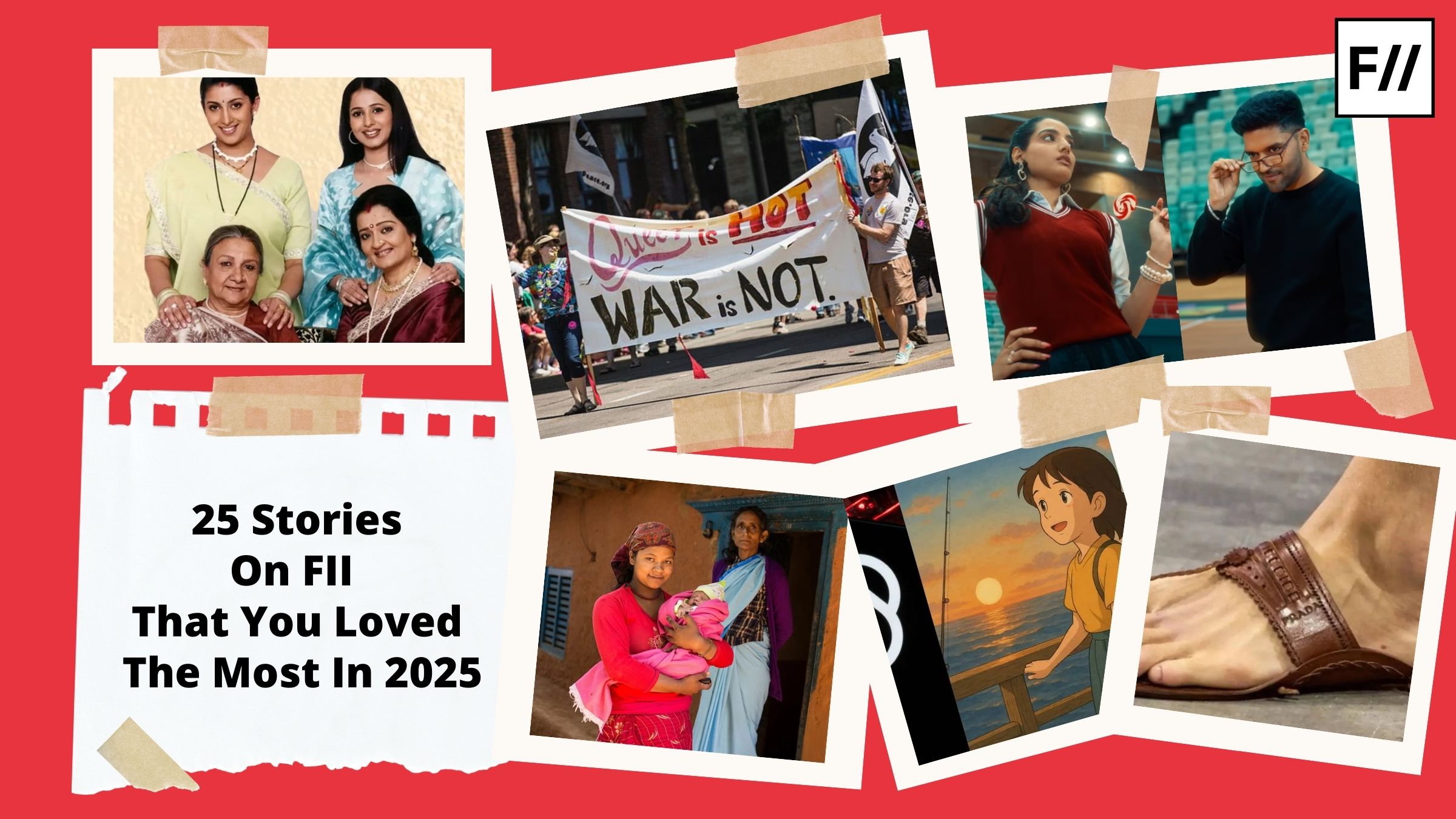On August 29th and 30th, Love Matters India conducted a workshop on Sexual Pleasure: The Forgotten Link in Sexual and Reproductive Health and Rights, a two-day workshop for young professionals in Delhi working on gender and sexuality issues, online and/or offline.
FII Campaign Manager Asmita Ghosh attended the workshop, which was an extremely fulfilling and enriching experience. The workshop was centred around the idea that sexual pleasure should be a lens that is foregrounded in the discourse around sexual and reproductive health and rights (SRHR). SRHR discourse usually centres safety, consent and health. However, pleasure is a factor that is left aside, even amongst sex-positive feminist activists.
A focus on pleasure, the workshop brought out, can bring out elements that have been largely ignored by sexual and reproductive health service providers, where discussions are usually limited to a problem and solution approach. A focus on pleasure can lead to a broader and more inclusive approach to issues of sexuality and sexual health, thus allowing to take informed decisions about sexual relationships with their pleasure being an active factor in these decisions.
The workshop however, was not limited to only SRHR service providers, and stressed on mainstreaming pleasure in our everyday work on sex and sexuality issues, and brought together activists that worked on a variety of issues from HIV/AIDS prevention, abortion rights and access, adolescent health and sexuality, theatre and storytelling, and digital media.
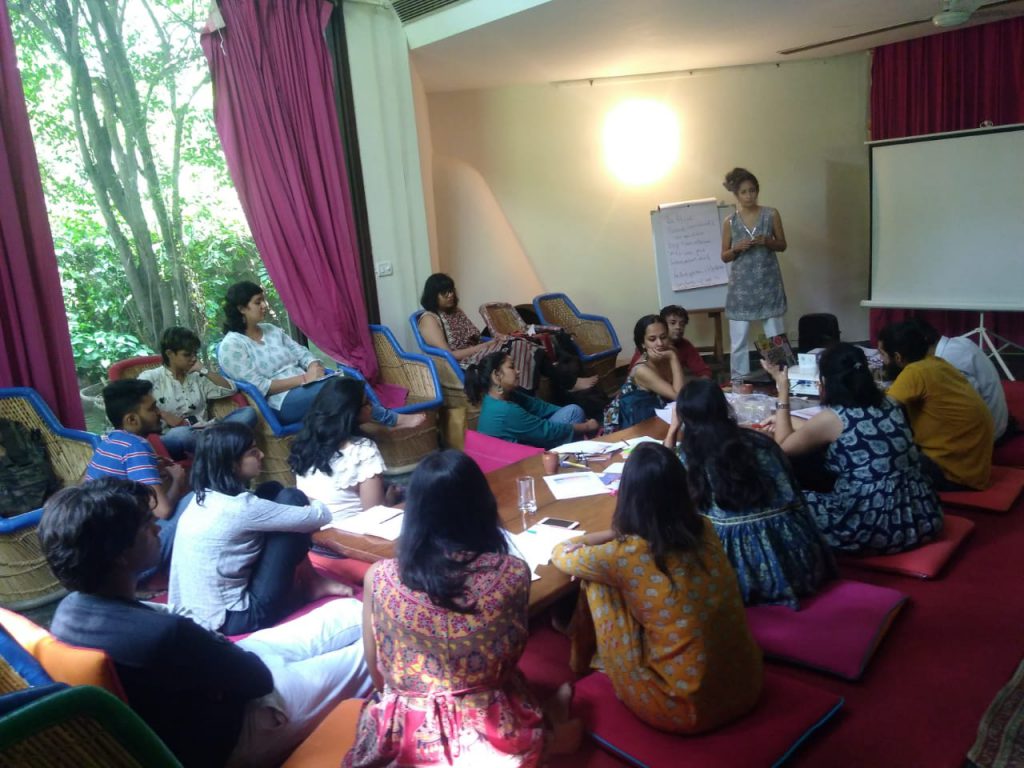
The workshop used material from an extensive toolkit put together by the Global Advisory Board For Sexual Health and Wellbeing (GAB), supported by Durex. GAB is an independent group of SRHR experts from around the world who have come together in recognition of the lack of equal attention to sexual health, sexual rights and sexual pleasure in research, education, training, policies and programmes regarding sexuality.
The toolkit defined sexual pleasure as “the physical and/or psychological satisfaction and enjoyment derived from solitary or shared erotic experiences, including thoughts, dreams and autoeroticisim. Self-determination, consent, safety, privacy, confidence and the ability to communicate and negotiate sexual relations are key enabling factors for pleasure to contribute to sexual health and wellbeing. Sexual pleasure should be exercised within the context of sexual rights, particularly the rights to equality and non-discrimination, autonomy and bodily integrity, the right to the highest attainable standard of health and freedom of expression. The experiences of human sexual pleasure are diverse and sexual rights ensure that pleasure is a positive experience for all concerned and not obtained by violating other people’s human rights and wellbeing.”
The two-day workshop was wide ranging in its ambit. It started out with discussions on sexuality and society, and their differing degrees of openness and community. Sexuality is very much a product of its society, and cannot be attributed purely to individual agency. Thus, it is very important to study society when discussing sexuality. Desire, while intensely personal, is also impacted by social factors like caste, class, ability, sexuality, experiences of abuse in the past, etc.
The trainers introduced the triangle approach to looking at sexual and reproductive health and rights, with the three apexes of the triangle pointing to sexual health, sexual rights and sexual wellbeing (pleasure) respectively, while keeping agency at its centre. The endeavour was to make sure all three factors are taken into consideration when offering an SRHR service, and to talk about safe sexual practices through the vocabulary of sexual pleasure.
The participants of the workshop were then teamed into small groups and given role-playing situations as SRHR service providers, such as HIV prevention and abortion clinics. They were asked to think about what questions to ask and what kind of an environment their hypothetical service would provide, if they were to apply the triangle approach in their service. The aim was to maximise the client’s comfort and reduce judgment and stigma, such that the client felt free enough to access the service offered to the fullest. Therefore, the focus would not only be on the right to safe sex, but on the right to safe and pleasurable sex.
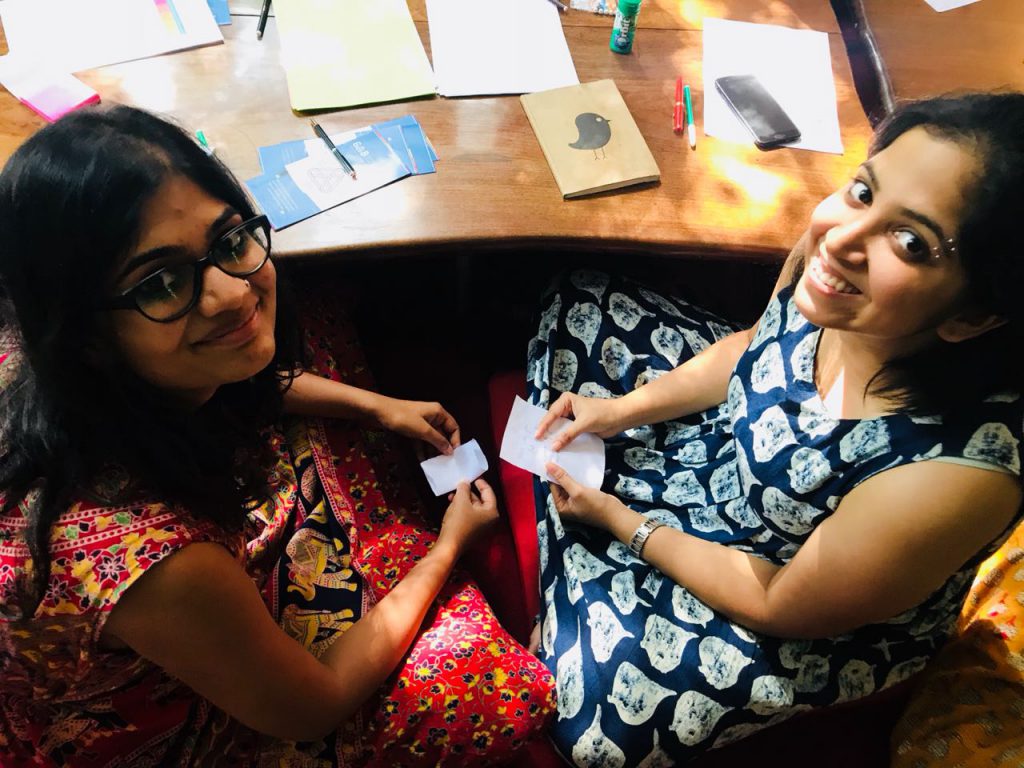
The workshop then delved into the different kinds of vocabulary used when advertising responsible and safe sexual health practices. Messaging could broadly be divided into fear-based messaging and risk-based messaging. It was revealed that pleasure-based messaging that centred the maximisation of safety and pleasure instead of highlighting the risks of unsafe sex were more effective in their impact.
The workshop was a very illuminating and reflective exercise, and created a judgment-free safe space that allowed many participants to walk through their own experiences with sex and sexuality and reflect on the same with the insights that the workshop had provided. It allowed for nuanced discussions that went beyond the usual conversations around consent and sexual health, and explored the grey areas of consent and the complicated relationship between safe, responsible sexual behaviour and sexual agency. The participants delved into deep, protracted discussions on issues like sexual kinks, taboo desires, BDSM, pedophilia, adultery, sexual abuse, sexual trauma, among others.
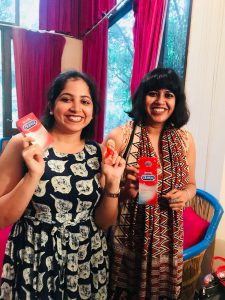 Participants walked away with a deeper understanding on how to apply the lens of sexual pleasure in their work, as well as a lot of self-reflection. The Pleasuremeter tool created by the GAB, which asked its users to rate their sexual experiences on a scale of 1 to 10 on seven different parameters, including self-determination, consent, privacy, safety and pleasure, was an exciting tool that could be used in a variety of professional scenarios. The workshop also created strong bonds and a sense of community between its participants, leading to more capacity building and resource sharing and mobilisation opportunities for the future. The free condoms and lubricants provided by Durex were definitely a fun perk too!
Participants walked away with a deeper understanding on how to apply the lens of sexual pleasure in their work, as well as a lot of self-reflection. The Pleasuremeter tool created by the GAB, which asked its users to rate their sexual experiences on a scale of 1 to 10 on seven different parameters, including self-determination, consent, privacy, safety and pleasure, was an exciting tool that could be used in a variety of professional scenarios. The workshop also created strong bonds and a sense of community between its participants, leading to more capacity building and resource sharing and mobilisation opportunities for the future. The free condoms and lubricants provided by Durex were definitely a fun perk too!
Also read: Female Masturbation: Politics and Pleasure
About the author(s)
Feminism In India is an award-winning digital intersectional feminist media organisation to learn, educate and develop a feminist sensibility and unravel the F-word among the youth in India.
